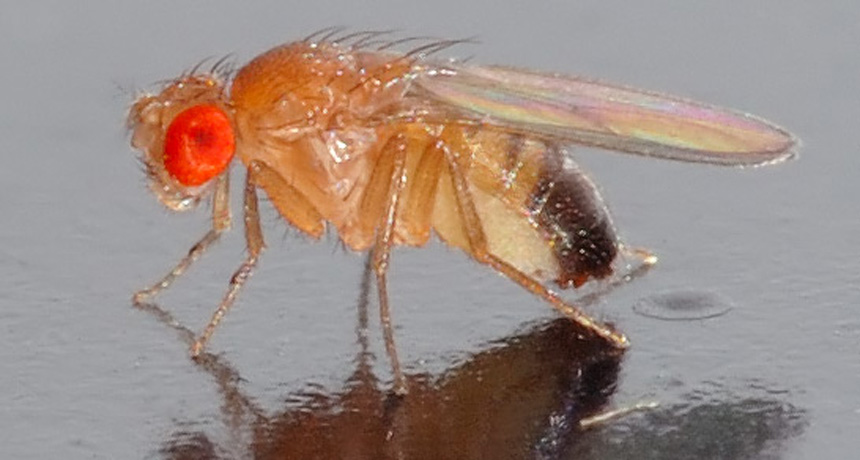Old fruit flies’ swagger restored with brain chemical dopamine

Older male fruit flies spent more time courting females after their dopamine levels were boosted in a handful of nerve cells.
André Karwath/Wikimedia Commons (CC BY-SA 2.5)

Older male fruit flies spent more time courting females after their dopamine levels were boosted in a handful of nerve cells.
André Karwath/Wikimedia Commons (CC BY-SA 2.5)